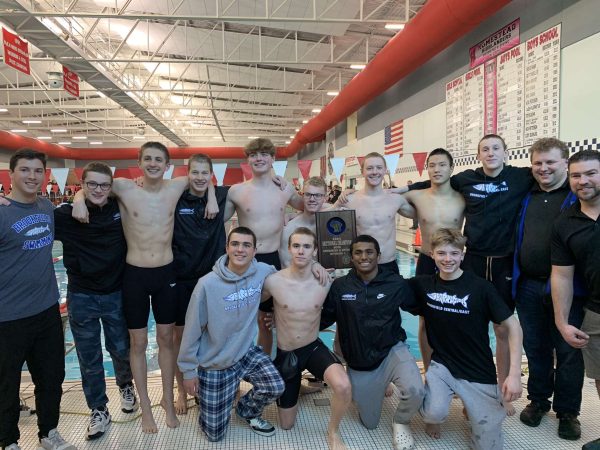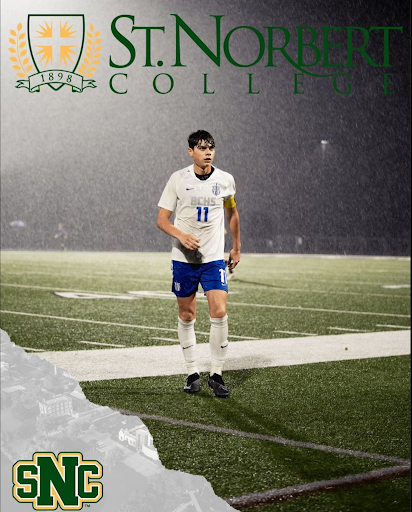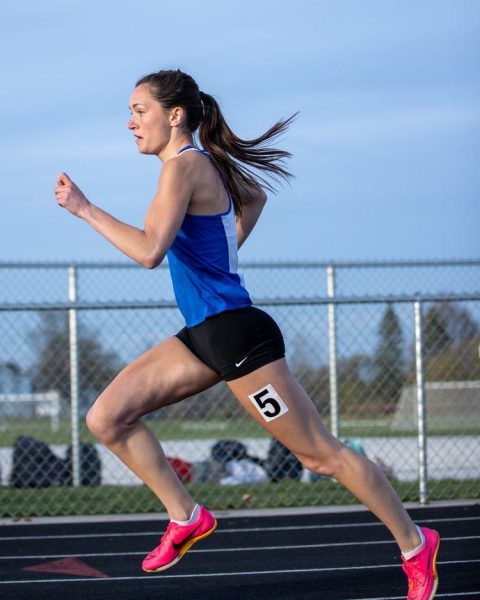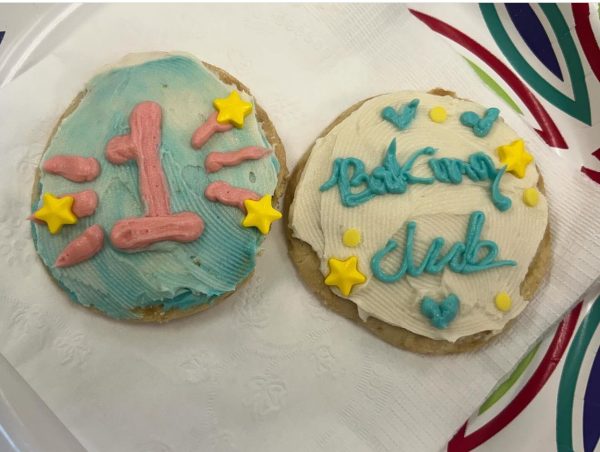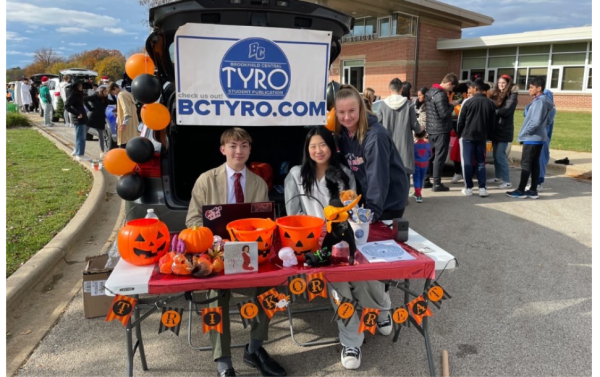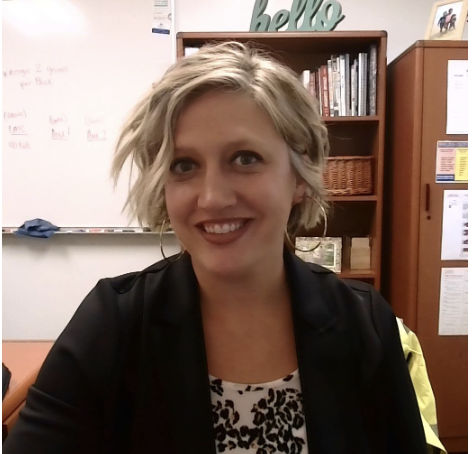Penguin Meets Crocodile by Bonnie Jin
Penguin Meets Crocodile
(Honorable Mention, short story)
This terrible scene unfolded on the shore of the Pacific ocean near Melbourne, Australia. At dusk, a little penguin was just returning to the shore through a huge tidal wave. As it moved its flippers towards a seemingly decayed “log” blocking its way, the penguin suddenly realized that the “log” was not a piece of wood, but a crude crocodile with its jaws wide-open, exposing long sharp teeth glinting dangerously.
Desperately anxious about the fortune of the poor little penguin, I woke up with a frightful scare. Luckily, this was not real, but only a nightmare. Lying in bed, I began to wonder how a penguin and a crocodile somehow ended up together in the dream. Finally, the answer came to me, my dream must have been influenced by the Australian tour that I’d went on two months ago with my parents. I witnessed both penguins and crocodiles in action, and it is their totally unique characteristics that have made a lasting impression on me.
Last summer, we visited Penguin Island, where I was fortunate enough to see a splendid view of penguins returning home merrily at sunset. Not far from Melbourne, Australia, Penguin Island is a perfectly cozy residence for thousands of small penguins. Some call them little penguins or blue penguins, otherwise known as fairy penguins! These creatures are beyond special: tiny and delicate in appearance, but are capable and powerful in character. Every morning at dawn, they leave their shelters in search of food, travelling as far as 100 kilometers across the Pacific ocean. At dusk, they return through tidal waves, often going against high wind speeds and storms, until they finally arrive home, weary and exhausted. A journey everyday for survival and adventure!
Since it was winter in Australia at the time, we were told that the best time to see the penguins was around 7pm, when the sky was completely dark. When we arrived on the observation deck, nearly all the benches had been occupied by spectators. Fierce winds broke the ocean as foamy white waves crashed vigorously against the beach. The smell of the ocean filled the area, so salty that I could almost taste it. It was relaxing to gaze at the waves lapping against the shore, and to hear the sound of seagulls above me. The tides were ferocious, each wave larger, bigger and taller than the previous one. However, as they got closer and closer, there were no signs of any penguins. I looked around curiously and waited impatiently, but all I could see – under the dim path lights – was the distant sand and rocks on the shore.
“Oh! Look!” A voice startled me and everybody began actively seeking the penguins. As I peered into the darkness, a tiny dot was visibly spotted above the wild waves. Struggling, it reached the shore, picking itself up to look at its surroundings. It was a little penguin, with a dark-colored back and a white underside. Glancing from side to side, the penguin seemed to be on full alert for any enemies. Satisfied with its findings, it waddled back into the water, swept under the waves once more.
A few moments later, a group of 15 or so of these little penguins followed up. They appeared to be of the same colony. The first penguin was simply a scout! Flopping onto the beach, they stood up gently, before walking awkwardly towards the rocks – their homes – pecking each other on the way. Before the first group disappeared from my sight, several other groups of penguins came up the shore in succession. During an hour’s time, I watched a crowd of penguins emerging from the ocean. They mapped out a man-made ‘Penguin Freeway’ that stretched a couple of hundred yards long, emanating from the shore and extending to their homes, scattered here and there on hills. Under the dim path lights, these penguins were clearly seen parading in teams and returning home happily – with flippers charmingly extended.
Just when I thought there might not be any penguins left in the ocean, a huge wave crashed onto the beach, bringing with it the last penguin. This penguin, in particular, peaked my interest because it wasn’t in a group like the others. At first I thought it might be another scout, but soon I sensed that this little penguin seemed to have been separated from its group. Curious and worried about this lone penguin, I promptly stood up and began following that penguin up the hill. I could see lots of penguins resting in bushes or behind rocks. Were they waiting for the rest of their group? However, this penguin never bothered to stop.
Obviously, this penguin did not belong to any of those groups. It continued to waddle alone, periodically pausing and looking around, as if listening, until it reached a corner where a big group of fairy penguins were standing. It was like they were waiting for this penguin and the little penguin waddled quickly to the group. Happy that all was well, I sighed with ease “The straggler has finally returned home, safe and sound!”
The behaviors of the little penguins and their families deeply impressed me. I didn’t know how they travelled across the ocean, without getting lost on their way back, nor did I have any idea how they communicate with one another in the ocean. But for the first time, I witnessed a little penguin who had walked all that way to catch up with its family. It is indeed a type of affection!
As I pondered about the trip last summer, I successfully connected it to my nightmare. The straggler I’d seen must be that unfortunate one in my dream! That led to another question, where did the crocodile, that was threatening the penguin, come from? Could it be yet another animal I’d seen before?
That’s when it clicked. The crocodile was another creature that I’d witnessed during my same trip to Cairns, Australia, which is located near the equator. The tour guide there told me an adult male crocodile could grow up to a length of 6 to 7 meters (2.5 to 3m for a female), and could weigh an average of 522 kg. Crocodiles prefer to reside in areas with warm and humid climates. Unlike the adorable penguins, crocodiles look extremely crude and aggressive.
Nearby Cairns, Marine Land Crocodile Park is lodged on Green Island, full of lush greens and tourists. When we visited by cruise ship, the temperature was still over 32oC although it was winter. There existed the oldest animal I had ever seen: a crocodile nicknamed Cassius that was 110+ years old and weighed 1,300 kg. I witnessed the feeding process of a whole chicken being swallowed in one gulp: the chicken was first dangled above the snout of Cassius, barely touching it. I could smell the raw chicken from where I stood, and braced myself for the spectacle. Cassius, however, stayed half-submerged in water, eying the chicken hungrily. His bloodlust was evident as he raised his snout as if to sniff the chicken, tasting it, before moving slowly and quietly, getting his body fired up. There was a split silence before Cassius unexpectedly rose up out of the air, its jaws wide open, clamping them down over the chicken, swallowing it whole in one small, glorious moment!
Amazed by the rapid speed of this large, bulky monster, I immediately realized why it was so easy for wild crocodiles to capture prey such as live birds or fish. The crocodiles would quietly wait in the water or on the shore – similar to that one in my nightmare, where the penguin was “attacked” by the crocodile. Besides fish and birds, humans could also fall prey to wild crocodiles. Weeks prior to my arrival in Cairns, Australia, there was such a crocodile-attack incident near the Great Barrier Reef Coast Marine Park. A lady from New Zealand who had gone skinny dipping at night ended up as food for a crocodile.
Worse still, male crocodiles will also eat their mates. In the Crocodile Park, I was told Bella and Bulla (two huge crocodiles) were an old-wedded couple, both 50 years old, and were considered as the most successful mates. They live together, lay eggs together, but don’t feed together. During the feeding time, I personally observed this incredible scene: while the male (Bulla) was enjoying his meal, the female (Bella) retreated, submerged patiently under water, waiting and watching Bulla devouring meat hungrily until he’d completely finished and swam away. This was explained as male dominance over the female due to the size of the male, and the dangerous possibility of the male killing the female during extreme hunger.
The next day, while on a cruise down the Phillips River, I spotted an 11-week old crocodile on the tip of a broken branch of tree. It was so small, it almost looked like a lizard. It seemed to have been abandoned by its parents and had to fend for itself. Several wild crocodiles also caught my attention; some floating in freshwater, and others lounging on the ground of the bank. It was simply impossible for me to distinguish a piece of wood from a crocodile in the water. I was completely terrified, a floating log may very well turn out to be a vicious crocodile, just like the scenario played out in my nightmare.
Recalling my trip, where I observed both the penguin and the crocodile, their almost opposite characteristics impressed me deeply. The nature where the penguin and the crocodile coexist is a microcosm of the human society or the world where good and evil coexist. The spirit and remarkable characteristics penguins possess have set good examples for me. I aspire to have those hardworking qualities penguins have, as well as their courage and teamwork. They may not look it, but on the inside they are brave creatures, not afraid of the endless ocean and working together to keep the group safe, including sending scouts onto the shore. On other hand, even the crocodile, the enemy of penguin in my nightmare, possesses certain merits, such as being very independent and having utmost patience. In spite of poor environments, crocodile are able to seek food by themselves, and have an everlasting patience when hunting prey. Of course, if someday in the future, evil could be turned to good through education or reasoning with moral ethics, how wonderful that would be! By then, when a penguin meets a crocodile once again, they would live happily in peaceful coexistence, in harmony and in cooperation.
The Scholastic Art Competition recognized Bonnie Jin (’19) with an Honorable Mention for her short story, Penguin Meets Crocodile.


